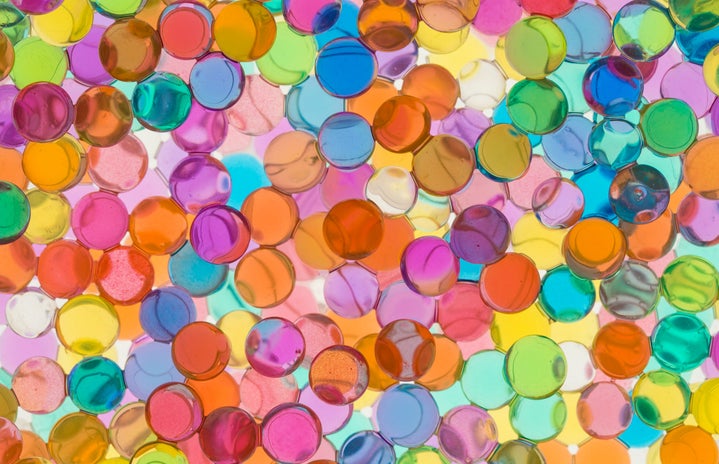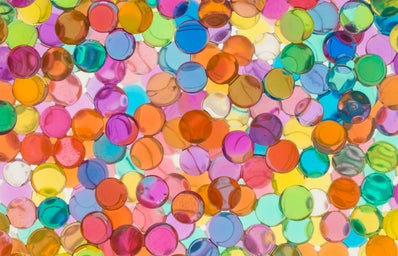College students don’t exactly operate on the same schedule as the rest of the world. We run from class to jobs and extracurriculars without a moment’s pause and still manage to stay out until 4AM half the time. But we are not superhuman, and many of us rely on caffeine to create a few extra hours in each day. But what are we really doing to our bodies with all that coffee, Red Bull, Pepsi Max, and 5 Hour Energy?
WHY DO WE GET SO ENERGIZED WHEN WE DRINK CAFFEINE? Caffeine causes an immediate rush of adrenaline, the chemical our bodies release when we are faced with danger. This causes us to become more focused, alert, and energized. Basically, it tricks our minds into thinking we’re not tired for a few hours, and increases our bodies’ capacity to complete tasks. So if it’s 3AM and that paper still isn’t done, caffeine can keep you from passing out on your keyboard. Caffeine can also reduce headaches, which is why many pain relievers put a small amount of caffeine in their formulas. However, these effects only help us when caffeine is consumed in MODERATION.
SO WHAT’S MODERATION? It is suggested that each person can experience caffeine’s benefits at a dose as small as 25 to 50 milligrams of coffee a day—equivalent to one cup of tea—and no one should exceed 250 milligrams, or 2 cups of coffee, each day.
WHAT’S THE PROBLEM, THEN? When taken in high doses (which it often is, especially by college students), caffeine has all kinds of nasty effects. Basically, it works just like any other kind of drug—we ride on an energized high for a few hours, and then we inevitably crash when the effects wear off. And, just like any other drug, caffeine is totally addictive. The more we drink, the more caffeine we need to feel energized, until we’re drinking coffee all day long just to function normally. When you’re addicted to caffeine and you don’t get your fix, you can experience withdrawal symptoms, like headache, fatigue, irritability and insomnia. And when you’re feeling tired, grumpy, and run-down, what else can you think of but another caffeine fix to get you through the afternoon?
WHY IT IS PARTICULARLY DANGEROUS FOR US? College students treat caffeine like a life force, using coffee, soda, and energy drinks to sustain us through the day, and, often, as a substitute for sleep. We rely on caffeine as a best friend—a study aid, a party companion, a motivator at work. A Starbucks barista in the college town of Ithaca, NY, says she observes hundreds of students a day chugging coffee and staring at their laptops well into the night, struggling to stay awake to get their work done. We may think caffeine is a harmless beverage, no more dangerous than Juicy Juice, but caffeine can be extremely dangerous when abused and overused. When we drink caffeine, we only think of the energy boost it provides without considering the risks that come with it.
WHAT ARE SOME OF THE SERIOUS RISKS OF CAFFEINE? If you REALLY drink too much caffeine (usually more than 300 mg—so three cups of coffee in a row, which really isn’t that uncommon for college students), you can experience something called caffeine intoxication, which can get pretty serious. Some symptoms that point to a caffeine overdose:
- restlessness/anxiety
- increased urination
- irregular or rapid heart rate
- rambling speech and thoughts
- disorientation
Too much caffeine can lead to all kinds of other nasty physical and mental problems in the long term, such as:
- stomach ulcers
- acid reflux
- breast cysts
- sleep disorders
- depression
- anxiety
- delusions or psychosis (only in very high doses)
The way college students drink caffeine—all day, every day, all night long—makes us extremely susceptible to caffeine addiction and all the health risks involved. Maya, a sophomore at Cornell University, warns, “Caffeine isn’t worth the complications: I used to live on coffee and Diet Coke, and last year I started having all kinds of stomach problems, so I went to an endocrinologist. The doctor told me to stop drinking soda and coffee because the caffeine irritated my stomach lining.” Basically, if we don’t quit now, we may be in for some nasty health surprises in the future.
SO HOW DO WE KICK THIS DANGEROUS HABIT? The good news about caffeine is that, while it is extremely easy to get addicted (just three cups a day for a week will get you totally dependent on the stuff), it’s also pretty easy to kick the habit. If you’re willing to experience a few days of withdrawal symptoms, just a week or so of going cold-turkey will shake you of the addiction. If you’re not so up to a few days of headache, nausea, fatigue and irritability, try cutting down to one cup a day at first, or ordering your coffees “half caf”, or half-caffeinated/half-decaffeinated.
NOW THAT I’VE KICKED THE HABIT, HOW DO I SURVIVE? Decaffeinated herbal teas are a great alternative to coffee—they’re good for you, they often make you feel more energized, and they give you something hot to drink that doesn’t totally mess with your body. Ginseng, which is found in many green teas, is known to increase your mental and physical energy levels without any of the dangerous risks that come with coffee or Red Bull. High-octane foods, such as berries, mangoes, and whole grains, also provide us with a caffeine-free energy boost. Drinking lots of water, regular exercise, and trying to get on a semi-normal sleep schedule are also great ways to reduce your dependence on caffeine. Once you stop riding the caffeine roller-coaster, you’ll be surprised at how energized you’ll feel all day—you won’t ever need to go back to your Venti house blends or skinny soy vanilla lattes ever again!
References:
http://www.abc.net.au/quantum/poison/caffeine/caffeine.htm
http://en.wikipedia.org/wiki/Caffeine#Overuse
Starbucks Barista, Collegetown, Ithaca, NY
http://web.archive.org/web/20070614144016/http://www.cspinet.org/nah/caf…
Maya Guerra, Cornell University sophomore

